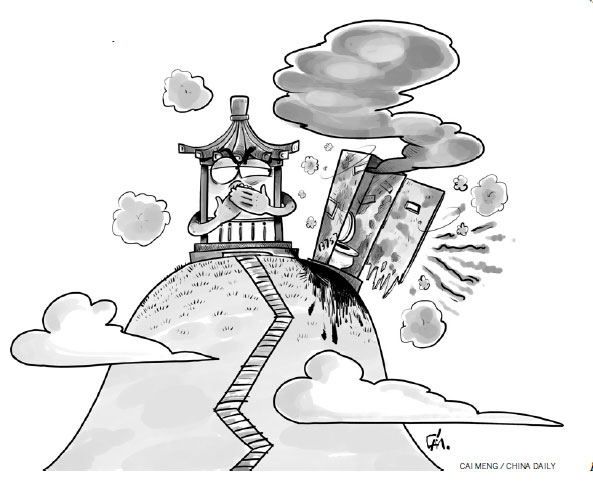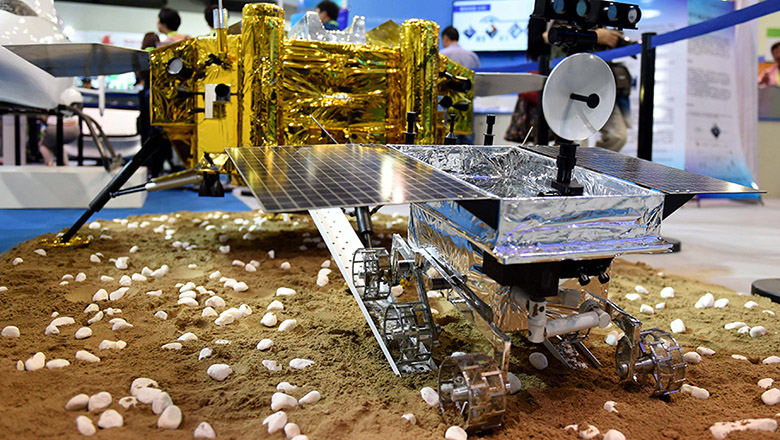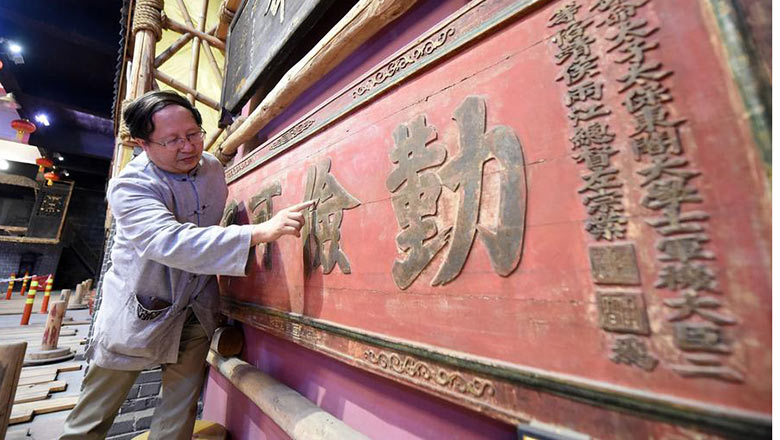Elegant toilet culture to boost tourism
Updated: 2016-05-20 09:07
By Jack Sim / Sun Xi(China Daily)
|
||||||||
Thursday is China's sixth National Tourism Day. China's domestic tourism market has been booming in last decade, with a 10 percent annual growth on average and spending is expected to reach around $890 billion by 2020.
However, the bottleneck in China's domestic tourism market is now none other than its "inadequate, dirty and chaotic" toilets. As Li Jinzao, head of the China National Tourism Administration, has pointed out, a dirty toilet destroys the efforts of all kinds of tourist resort promotions and their negative impact is hard to erase.
That was why, the CNTA launched a nationwide three year "Tourism Toilet Revolution" in January 2015, with the goal of building and reconstructing 57,000 public toilets by the end of 2017. Only last year, more than 20,000 new toilets were built.
Actually, Beijing's 2008 Olympic Games was the beginning of China's toilet revolution. In an effort to ensure their success, the Chinese government invested billions of yuan in building 4,000 new public toilet facilities to world-class standards. To showcase the great progress that was made, Beijing hosted the World Toilet Summit in 2004, with the help of the World Toilet Organization.
There is no doubt the Chinese government has the capability to deliver any ambitious infrastructure commitment quickly. But it is the software that is critical to the success of the toilet revolution. China's toilets are generally "unevenly scattered, poorly managed and low in quality".
That could be remedied by following the "ABC" rule, namely architecture, behavior and cleaning.
First of all, public toilets have to be user-friendly to a wide variety of people of both genders, from mothers with babies to kids and adults, as well as the elderly and disabled. Architects and the facility owners need to be "toilet trained" so that they understand how to design for different types of buildings and the needs of different demographics.
However, behavior is the most critical part for success. It includes environmental conditioning inside the toilet that guides the user's behavior as well as the awareness of behavioral norms of society at large. To promote public education of toilet usage, both rational and aspirational approaches are needed. Past experience shows that rather than lecturing posters, motivating aspirations of personal elegance often proves most successful. When a toilet respects the users, the chances of reciprocal respect from the user are also higher.
Clean toilets also require the professionalization of cleaners, facility managers, and owners. Right training, equipment and supplies are critical success factors. In fact, many public toilets in China have been constructed according to high standards, but as the management is not up to the same standards, they become dirty and fall into disrepair quickly.
The ancient Chinese had a culture of recycling excreta into fertilizers and this practice created plenty of toilet designs that facilitated the manual collection of excreta especially in rural areas even today. As these designs were not focused on the enjoyment and privacy of the individuals, an elegant toilet culture did not develop in many parts of China.
Now, with the past 30 years of rapid economic growth, Chinese people enjoy quality lifestyles in almost every aspect. Yet an elegant toilet culture is still missing. It has caused major anomalies and incurred many complaints both inside and outside China. Therefore, promoting a better toilet culture will not only boost more in-bound tourists, it will also be welcome by the host countries receiving out-bound Chinese tourists.
Jack Sim is founder of the World Toilet Organization and visiting fellow at the Institute of Water Policy from the Lee Kuan Yew School of Public Policy at the National University of Singapore. Sun Xi is an independent commentary writer based in Singapore and alumnus of the Lee Kuan Yew School of Public Policy.

(China Daily 05/20/2016 page9)
- Russia to build first cruise liner in 60 years
- LinkedIn, Airbnb match refugees with jobs, disaster survivors with rooms
- Duterte 'willing to improve ties' with Beijing
- Canadian PM to introduce transgender rights bill
- Hillary Clinton says her husband not to serve in her cabinet
- New York cake show designs fool your eyes

 China Daily, celebrating 35 years
China Daily, celebrating 35 years
 Six things you may not know about Grain Buds
Six things you may not know about Grain Buds
 China Beijing International High-tech Expo
China Beijing International High-tech Expo
 Highlights at Google I/O developers conference
Highlights at Google I/O developers conference
 Nation celebrates International Museum Day
Nation celebrates International Museum Day
 Body brushwork creates vivid animals
Body brushwork creates vivid animals
 Can you still recognize these cities?
Can you still recognize these cities?
 A private museum owner's devotion to cultural protection
A private museum owner's devotion to cultural protection
Most Viewed
Editor's Picks

|

|

|

|

|

|
Today's Top News
Liang avoids jail in shooting death
China's finance minister addresses ratings downgrade
Duke alumni visit Chinese Embassy
Marriott unlikely to top Anbang offer for Starwood: Observers
Chinese biopharma debuts on Nasdaq
What ends Jeb Bush's White House hopes
Investigation for Nicolas's campaign
Will US-ASEAN meeting be good for region?
US Weekly

|

|









